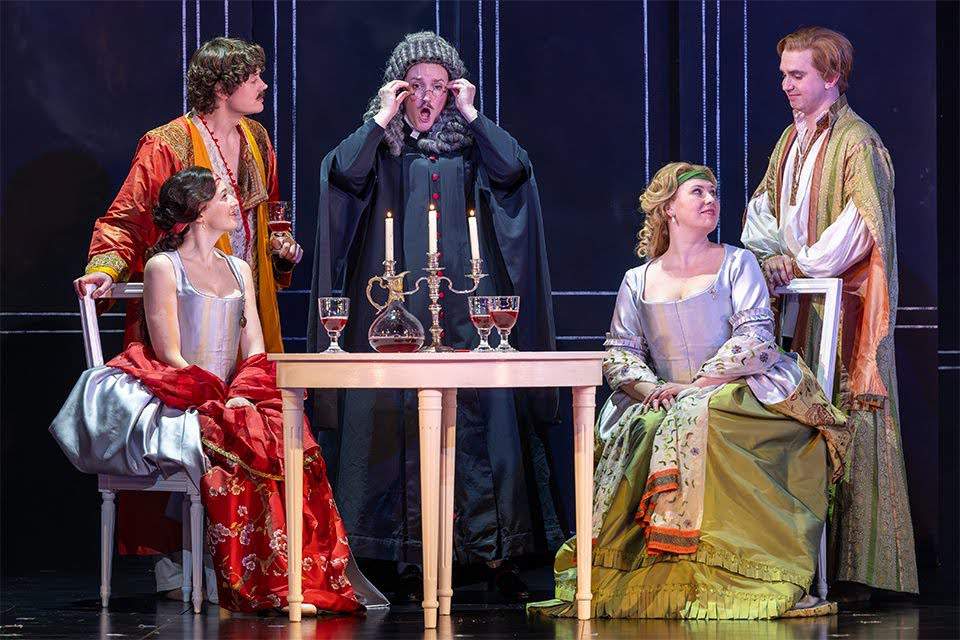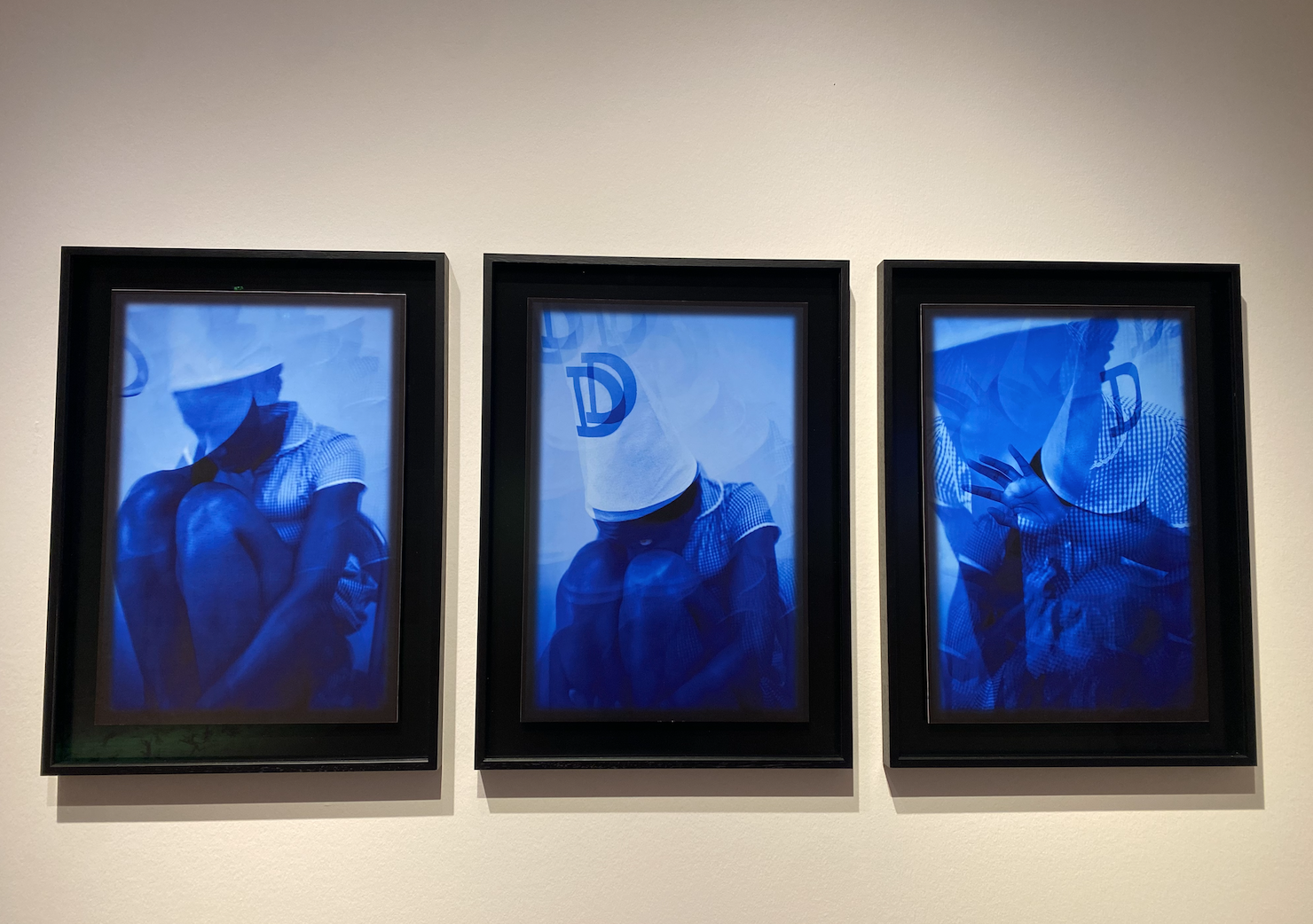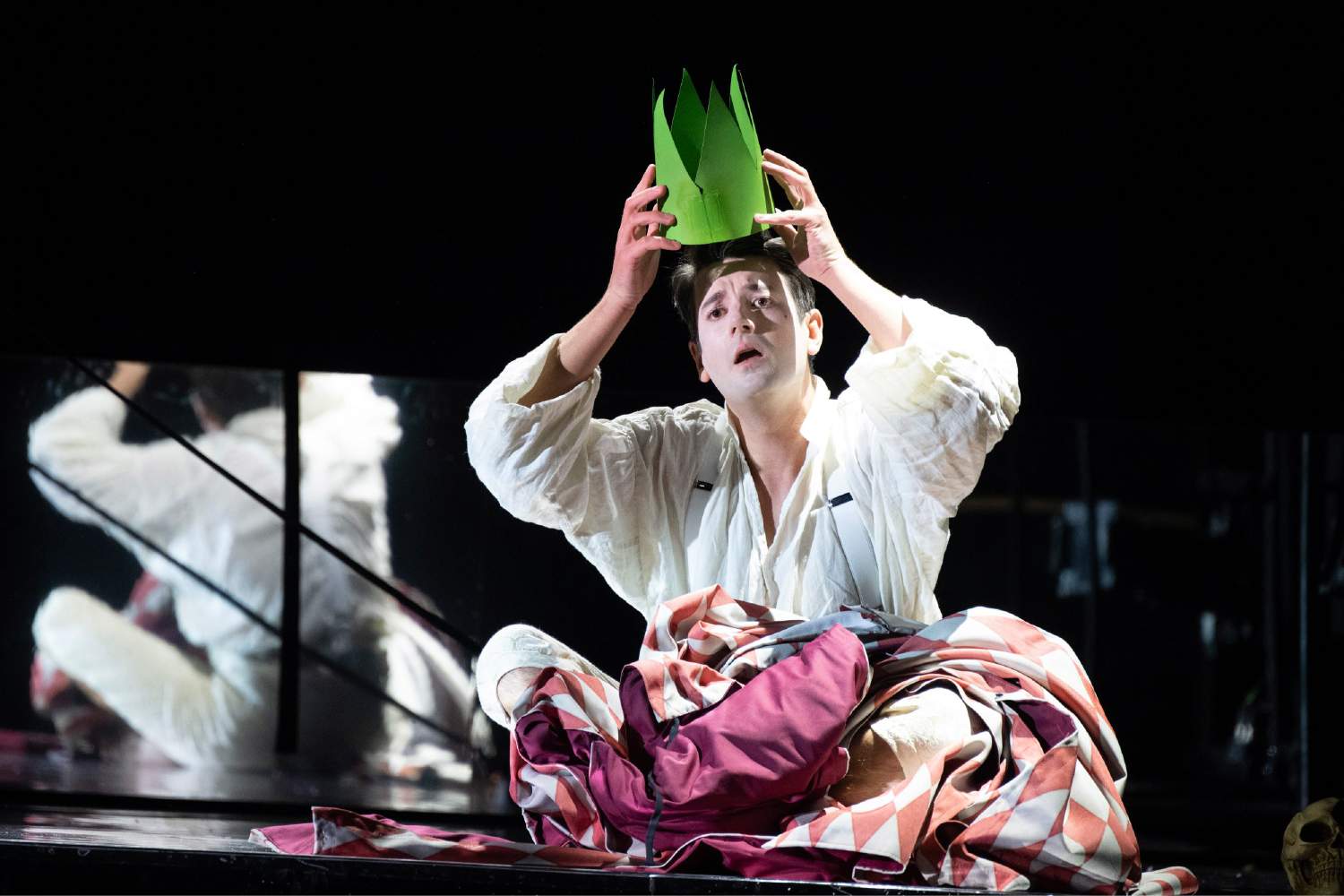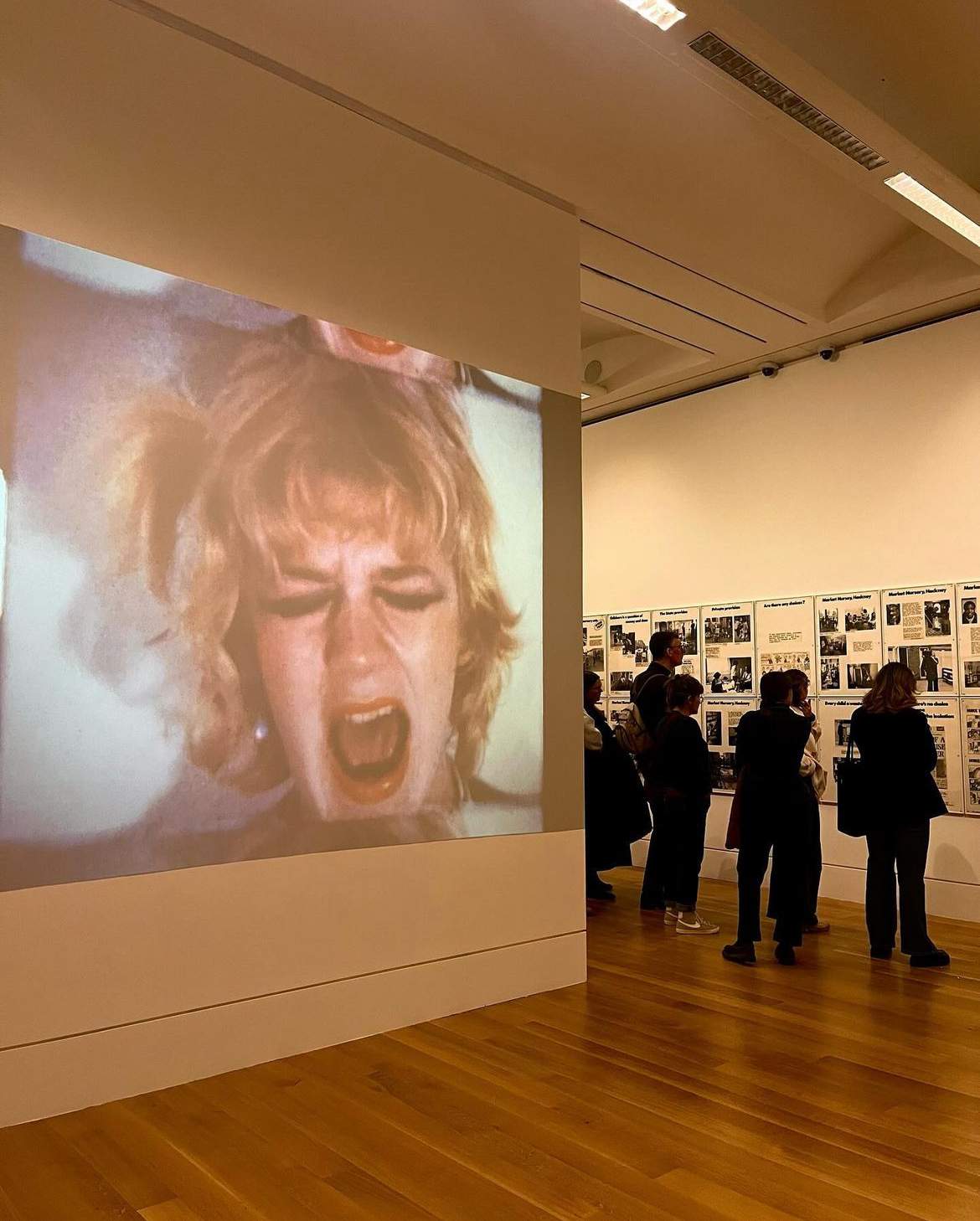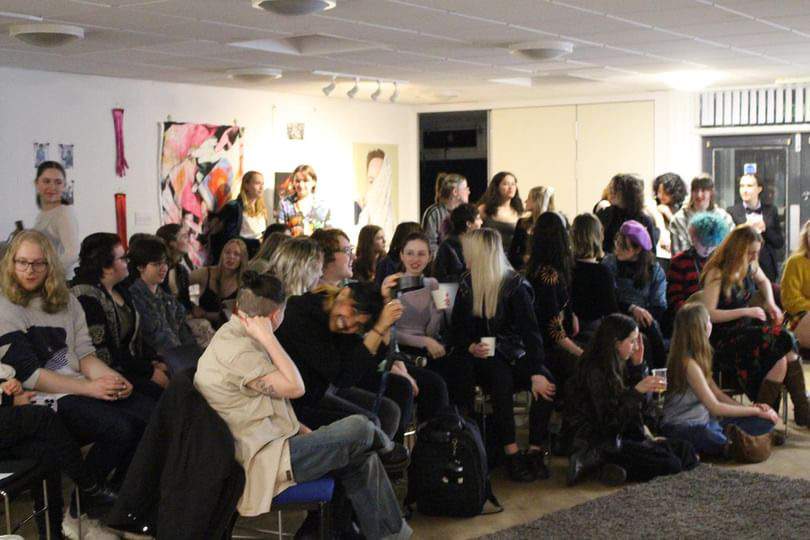In Così fan tutte, the title of Mozart and Dan Ponte’s 1790s opera, translates to ‘they’re all the same’, yet in Tim Albery’s long-standing production at Leeds Opera North, there is something quite different about it.
Albery’s stagecraft almost mirrors the early enlightenment fascination with forensic analysis, with the majority of the play being conducted inside a giant pseudo camera, the lens carefully buffed up by Don Alfonso in the opening of act one, provides the catalyst for the play’s events. Inside the camera, we see two sisters, Fiordiligi and Dorabella, and their lovers, Guglielmo and Ferrando. These characters appear after the men make a bet with their philosopher friend, Don Alfonso, over whether their lover’s loyalty will last a full day, especially since the women are tempted by ‘exotic’ suitors, who are actually each other's partner in colourful disguise. Despina, the sisters’ crafty maid, fulfils a similar role to Don Alfonso as the observer of their fates.
Though the outcome of this play is an obvious one it is no less entertaining as both women are compelled into dramatic, loving declarations and humorous encounters with their new suitors. By the end of the play, the sisters are ready to marry their new lovers. But the men are not so innocent themselves as Ferrando and Guglielmo, drawn in by their own ruses, seemingly fall for each other’s lover as well.Arguably, it is the men, not the women, who have their fidelity inspected under the camera lens.
The opera is set by a seaport in Naples in 1790. The men pretend to leave for war, only to return later as disguised ‘exotic’ “Albanians”, presumably to give the sense of faraway romance. Though Albery’s camera setting allows the construct to be more fluid, the time frame of France on the cusp of the French Revolutionary Wars is maintained with all the grief of men expected to go into service, causing the sister’s distress in act one and allowing Don Alfonso’s scheme to work. Despina’s costumes, like the male lovers, seemingly changes throughout the play; first as a doctor and then as a lawyer – designed by Tobias Hoheisel. Women dressing up in masculine roles for humorous effect has been popular in plays and operas since Aphra Behn’s The Rover in 1677, with her female lead Hellena disguising herself in breeches to the ignorance of her lover. Disguised lovers, therefore, have stood the test of time with Mozart and Da Ponte’s examination of love becoming part of this long-standing construct.
Albery’s production is sung in English. It is also accompanied by useful text on a side-screen which is useful, particularly as voices overlap and the side-screens make it easier to pick out jokes that have previously been lost. They are easy enough to glance to whilst still enjoying the actors on stage.
It has been speculated that in the original Così fan tutte, the two female leads of Fiordiligi and Dorabella in 1790 were sisters but, although Alexandra Lowe and Heather Lowe in this production share the same surname, they are not related. However, they both attended the Royal Northern College of Music which could explain why their voices are so well suited to harmonising with each other. Anthony Gregory and Henry Neill as the warring friends Ferrando and Guglielmo also display incredible vocal control and demonstrate a range that easily matches with each other and their counterpart lovers. Quirijn de Lang as Don Alfonso plays an unforgiving role, one often slated for the philosopher’s negative view, but the Dutch baritone certainly breathed life into the character, whilst Gillene Butterfield as Despina brought much-loved humour to the play – her voice carries a certain lilting quality that makes it easy to understand any anecdotes and euphemisms.
Certainly, Clemens Schuldt and Chloe Rooke as the conductors of the play have to be commended. The band beneath the stage played for three hours with perfect timing and accuracy. Before the play began the orchestra played a full song without interruption which affirmed to the audience that the band would be playing with the same delicacy and dedication throughout the performance.
This was my first opera, but I can already admit that this shall not be my last. I was apprehensive at first whether this would seem too old, or too dated but any concerns were quickly proven unnecessary. This opera was easy to understand and, more importantly, easy to enjoy with beautiful voices, stage construction, and music.
Editor's Note: This performance was enjoyed at the Leeds Grand Theatre on 2 February. The production continues its run in Leeds and then embarks on a Northern tour until 6 April. Tickets can be purchased here: https://www.operanorth.co.uk/whats-on/cosi-fan-tutte/?utm_source=google_adword&utm_medium=search&utm_campaign=WIN24_uk&gad_source=1&gclid=CjwKCAiAt5euBhB9EiwAdkXWO1ZErOhb9E-Dtf-QMTy2_CQltrOnOGn3YdfZyQ9aPwYQ3aHvVDQ8KxoCBrMQAvD_BwE#media

